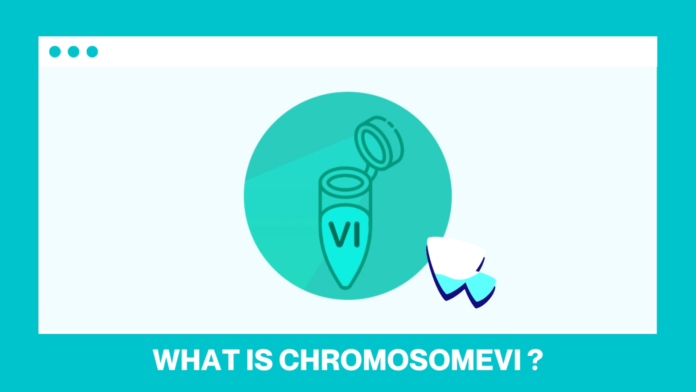I have often wondered how parents come up with names for their children, especially when I hear a tongue-twister like X Æ A-12, the child of Elon Musk. Some are named after their grandparents, others after an influential person; flower names for children were the trend of the 18th century. Currently, it is said that unisex names are the most popular. Similarly, famous brands and companies have a story behind their name. Coca-cola was called so due to its ingredients: coca leaves and kola nuts. However, Steve Jobs called his company ‘Apple’, simply because he liked the fruit! Now it’s our turn to share the story behind our name, “Chromosome VI”.
Chromosomes are DNA rolled up into a ball. What do you know about DNA? Various artists like Kendrick Lamar, BTS and Little Mix have released many pop songs called DNA with similar lyrics that say “In my DNA”. It is known as the hereditary material of all organisms because it is passed from your grandparents to your parents and then to you.
You may share some similar features with your mother or father; you and your dad may have the same eye color and maybe you have the same nose shape as your mom. This is evidence that you carry part of your parents’ DNA. The total amount of DNA in our body is about 6m when stretched out.
Chromosomes compress this large amount of DNA into tiny balls of thread with the help of proteins called histones. A gene is a DNA sequence that codes for a particular function. Your physical appearance and personality are in your genes (not jeans)!
Humans have 23 pairs of chromosomes. But, why did we pick chromosome 6 as our name?
Chromosome 6 has the gene set called Major Histocompatibility Complex (MHC) which codes for important proteins that make our immune system both human and unique. The immune system is responsible for defending our body against harmful foreign substances called pathogens. But, how does the immune system differentiate its own cells from foreign substances? How does it specifically attack pathogens while causing minimal damage to its own cells? This kind of recognition is done using the proteins on the surface of the cell coded, in part, by genes on chromosome 06.

MHCs are genes that code for these surface proteins known as MHC proteins. In humans, MHC is called human leukocyte antigen (HLA). Old or unknown short amino acid sequences which are known as peptides bind to the MHC that is found on the surface of cells. Once bound, it triggers an immune response which has the ultimate goal of removing it from the body. MHC genes are inherited codominantly. That is, equal parts of the gene come from the mother and father. MHC proteins of a person are individualistic. No two human beings express the same set of MHC proteins. The differences in MHC proteins is also the underlying cause for organ transplants from close relatives such as a sibling to be rejected! Hence, every human has a unique profile of immune-related proteins coded by chromosome 6 making us all human but unique from one another.
It is astounding to think that we humans, despite sharing similar interests, hobbies, and even physical characteristics are also very different from one another at a cellular and molecular level, to the point of your body rejecting your brother’s kidney that looks the same and does the same function as yours.
Maybe you’ve been called “basic” based on your lifestyle and preferences; maybe you’ve felt average all your life due to your grades and satisfactory career achievements. However, you and I are more special than we think. This world which promotes the mundane has dimmed our unique skills and personalities; but the unprecedented challenges that life throws at each one of us require our uniqueness and individual strengths to be unleashed and disbanded. That is our goal at ChromosomeVI. We want to help reignite the spark and entomb the buried uniqueness in you so you can be the best version of yourself and add more value to society. Come join us as we journey together to be uniquely human.


